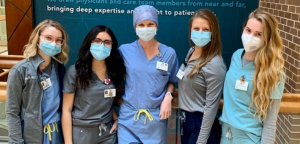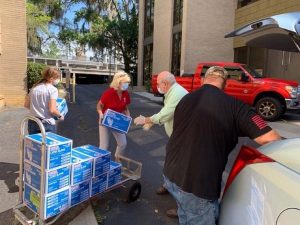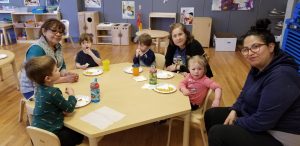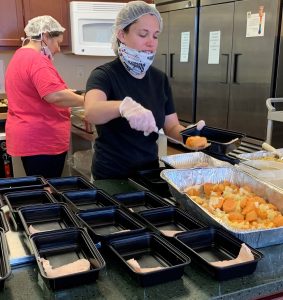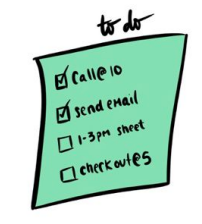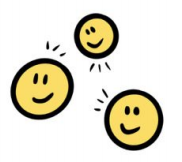The Valpo Career Center sends emails during the summer. Normally I give the email a quick glance then I send it to the trash, but I decided to read this one more carefully. On the page was a quote from Hassan Akmal stating, “Employers are not going to judge you if you are unemployed during a pandemic. However, they are going to focus on what you did during this time. What they want to see is that you are productive and taking your career development seriously.” Next to that quote was the “new #1 interview question” asking, “What have you been working on?”
What have I been working on?
This summer I am working at The Bridge Teen Center, a nonprofit organization in Orland Park, Illinois. Celebrating its 10th anniversary, The Bridge provides free, holistic youth programs that focus on a teen’s physical, mental, spiritual, and emotional well-being. Activities are designed to fit one of the five “buckets:” Everyday Life, Community Connections, Educational Support, Mind/Body, and Expressive Arts. As someone that is passionate about youth development and was interested in summer programming, I knew that The Bridge Teen Center was the place for me.
Then COVID-19 happened.
CAPS fellows were informed that internships would be remote. Considering the people-oriented nature of my internship, I was given the choice: I could either stay at The Bridge or I could move to another organization. If I relocated, I was guaranteed a remote job that I could start right away. If I stayed, I would be able to work in-person, but this all depended on state protocols. This meant waiting at least a month to see where things were headed. To make up for lost time, my internship would continue into the Fall semester.
Given the circumstances, I felt grateful to have an internship at all. I chose to stay at The Bridge because their mission matched my interests and the opportunity was worth the wait. Every week CAPS fellows check in with each other to see how everyone is doing. For the first few weeks, I didn’t have much to contribute about my job, but I always enjoyed listening to other people’s experiences and having fruitful conversations about service and social justice.
Thinking back to the email from the Career Center, I asked myself how I planned to spend my time during this season of waiting. On one hand, I could dive into “hustle culture” and plan my days down to the minute to maximize productivity. One the other hand, it’s summer vacation! I can do whatever I want! And by “do whatever I want” I mean do nothing at all because I can. Both sides of the spectrum are extreme and they’re both forms of self-destruction. All work and no play creates burnout, but a hedonistic lifestyle is artificial fulfillment.
As a fan of the self-help genre, it is a guilty pleasure to scroll through health and wellness videos on YouTube. Titles such as “My 6:00 am Morning Routine” or “10 Tips to Make Your Day More Productive” clog my feed. In my mind, I’m thinking, “This twenty-minute video will unlock all the secrets to life. I will finally have the tools and the inspiration to become my best self!” Video after video, I realized that I was spending more time watching than actually doing something. Why was that?
Certainly, those videos can be a good source of entertainment, but at the time, I wasn’t sure if I had any goals outside of a work setting. Losing the structure that I have at school, on top of a pandemic, made me crave a sense of consistency and normalcy. I was turning to other people’s lifestyles to find inspiration for my own.
I brainstormed some goals for myself. They’re the kind of goals that people announce on New Year’s Eve but then slowly forget about them by the time February rolls around. That’s something that I’ve noticed with goal setting and why some goals feel more achievable than others. As someone that loves to check something off her to-do list, if there was something that I really wanted to accomplish, I would have done it by now or I would have already made time for it. Considering that I have nothing but time, I can’t really use the excuse “I don’t have time” to justify my inaction. What was holding me back?
I realized that I didn’t have a clear “Why” for my goals, nor did I really have a plan for how I wanted to achieve them. Take any goal and let’s call it X. Typically, I would say something like “X is good for you” but that isn’t motivating enough for me to go out and do it. Instead, it makes me feel bad whenever I don’t do X because I’m not doing something that’s good for me. I had to change my thinking. As for creating a plan, I had to experiment with what worked and what didn’t. I could watch all the productivity videos in the world, but I am the only one that can figure out what is going to work for me.
In the next blog post, I hope to write more about my time at The Bridge. Thus far, I’ve toured the facility and had a few trainings. As I’ve been writing this blog post, I got an email from my supervisor asking me to plan an activity for August. Coincidentally, the title of the program is called #SKILLS: Prioritize your Goals. I hope I can bring some wisdom to that event.
In peace,
Emily
